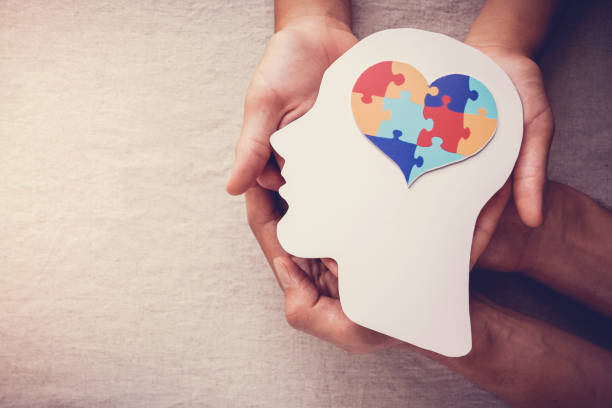What is Mental Health?
Our emotional, psychological, and social well-being are all aspects of mental health. Mental health affects not just how we think, feel, and act, but also how we deal with stress, interact with people, and make decisions.
Emotional issues are only one aspect of mental health. It’s vital to know that aid is accessible, whether it’s due to biological characteristics, life events, or family history.
What Are Some Common Mental Health Issues?
Stress is the body’s reaction to demand. Stress may lead to physical, emotional, and behavioural problems, all of which can have an impact on your health, well-being, and personal and professional relationships, it may also induce symptoms such as sleeplessness, backaches, and headaches, as well as potentially life-threatening conditions such as high blood pressure and heart disease.

There are many more, such as generalized anxiety disorder, which is defined as excessive concern or worry about things that are unrelated to a stressful experience.
Panic Attacks, Major Depressive Disorder a continual sense of hopelessness and despair that interferes with an individual’s ability to work, sleep, eat, and enjoy life daily. It can happen only once, but it’s more likely to happen numerous times throughout the course of a person’s life.
What Is the Connection Between Mental Health and Islam?
Spiritual Resilience – Islam provides a spiritual refuge for Muslims to live a peaceful existence by utilizing their inner abilities and developing a strong relationship with Allah, the ultimate power, by being positive, cleansing their emotions, and not waiting for external situations to improve. Islam recognizes spiritual status as an internal power that may be used to maintain a peaceful mind, a healthy conscience, and happy ideas.

Patience’s Role in Islam – Islam places a high value on sabr, which is mentioned explicitly in roughly 200 verses of the Quran and implicitly in many more. Patience is a characteristic that allows Muslims to persevere in pursuing moral goals despite adversity or repeated provocations.
Evil Eye (Ayn/ Nazar)- Belief in the evil eye is based on the following passage in the Quran: “And from the evil of the envious when he envies.” [113:5 in Al-Falaq (The Daybreak)]. The notion in an evil eye is that a jealous person may gaze at people, animals, or things and do damage to them.
What Are Some Misconceptions About Mental Health In The Muslim Community?
Mental health is a taboo issue in the Muslim community, which causes humiliation and dread among those who suffer from mental illness. This is a major problem that must be addressed so that individuals who are suffering can receive the assistance they require.

Another common misunderstanding among Muslims is that mental illness is linked to being “non-religious” or “not pious enough.” Many factors may play a part in the development of mental health disorders, therefore oversimplifying complex physical diseases in this way is unfair since it ignores the possible role of mental health specialists in assisting.
Many Muslims feel that today’s mental health challenges are Allah’s testing and so they ignore it.
As a Muslim, you, like everyone else, are influenced by life’s difficulties and troubling ideas, but you can cope with them much better because you have a clear roadmap of where you came from, where you’re going, and why, thus you get a head start having this essential information from its source.
In the face of a catastrophe, someone who feels entirely lost and alone is likely to feel powerless and dejected. However, someone who feels supported by a compassionate God who genuinely cares, who listens to desperate cries for help, and who grants generous assistance has a much better chance of getting back on track much faster because there is a strong helping hand to reach for while dealing with life’s difficulties.
“And for those who fear Allah, He always prepares a way out, and He provides for him from sources he never could imagine. And if anyone puts his trust in Allah, sufficient is Allah for him. For Allah will surely accomplish His purpose: verily, for all things has Allah appointed a due proportion.”(Quran, 65: 2-3)
Is contacting an imam or religious scholar sufficient for dealing with a person’s mental illness or personal problems?
Most Imams lack mental health training (or mental health first aid). Although many Muslims seek Imams’ counsel or assistance, there may be a miscommunication between an Imam and a mental health expert.
We don’t have to be superhuman to follow Islam. If one is experiencing negative sentiments, he is recommended to counteract them with positive ideas and behaviours, or to seek professional aid if the situation is severe.
When this peaceful equilibrium is disrupted, people get melancholy or sad, and Islam steps in to give a remedy for recovering psychological and mental balance, not to condemn the feelings.




